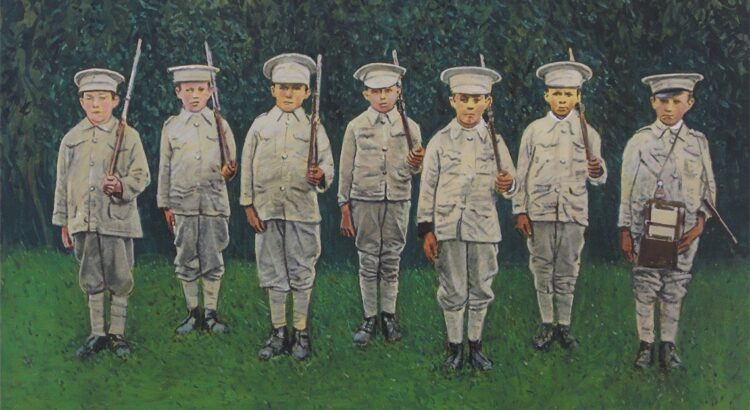The Druid Theatre Company’s production of The Plough and the Stars, from Sean O’Casey’s Dublin Trilogy, raises salient questions about the nuances and cost of violence in the name of nationalism. The play captures the months preceding and during Ireland’s Easter Rising of 1916, focusing not on the “heroes” who participated in the Rising but on the common people living through the conflict, a major theme in O’Casey’s work. O’Casey eloquently portrays the tension between normalcy and wartime through the everyday lives of and relationships among his characters.
I thought O’Casey’s treatment of gender in the plays I saw was interesting. While I disliked the way Nora’s character in The Plough and the Stars was used to convey the tragedy of war by playing into stereotypes of the “hysterical” or “unstable” woman, I appreciated the way all of the female characters were endowed with strong personalities and ideologies. Even though O’Casey occasionally used these strong personalities as the punchline to jokes based on binary expectations of masculinity and femininity, they meant that each character in the minimal cast was given weight and their perspectives meaning.
While I recognize that the conflicts portrayed in the Druid Trilogy are still salient in Ireland and the Irish diaspora, for me, O’Casey’s critique of Irish nationalism and religion were a little too far out of context to feel particularly compelling. That said, the relation of the play with conflicts occurring right now elsewhere in the world left much for me to consider. The program for this production explains that after The Plough and the Stars debuted in Dublin, demonstrations against O’Casey’s depiction of the conflict interrupted subsequent stagings. I think it’s interesting how the history of the production is one of collective reckoning with the value and cost of violent conflict.
I wouldn’t argue that Ireland’s wars in the early 20th century are contextually similar to modern wars such as those in Ukraine and Palestine, but I feel that there are certain overarching themes which apply to the way we conceptualize these conflicts. For me, watching O’Casey raised the idea that one can hold and examine many ideas at once. Pointing out the costs of violent conflict needn’t be synonymous with delegitimizing a cause. Even in the heat of the moment, it is essential to create space for critical thinking about ideological causes, especially when the choices we make invoke life-and-death consequences for innocent people.


